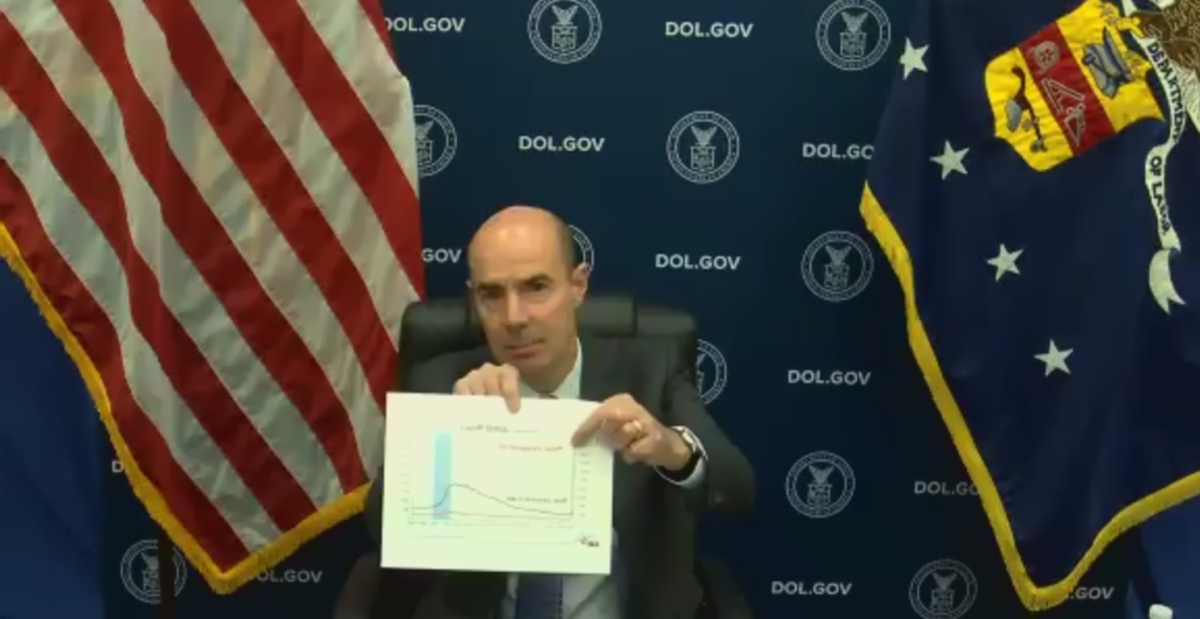Labor Secretary Eugene Scalia Says the Impact of Coronavirus Like World War II
May 11, 2020 — The most challenging aspect of running the Department of Labor right now is “how fluid and shapeshifting it is,” Labor Sec. Eugene Scalia said on a Monday webinar hosted by the Consumer Technology Association. Scalia traced a turbulent trajectory starting from the beginning of the cor










Member discussion